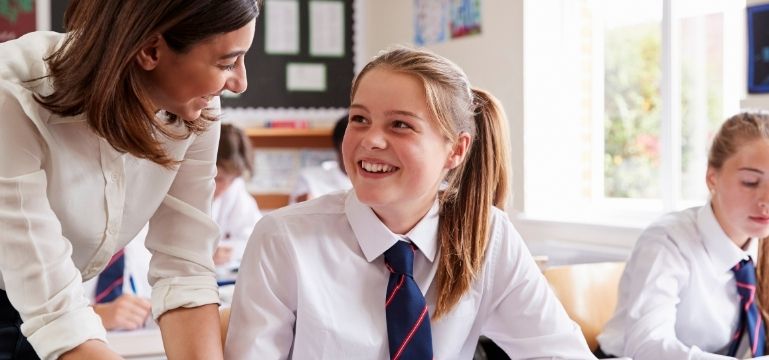The impact of the whole school approach to remove barriers to learning.

Quick links:
Information about the school
Ebbw Fawr is a 3-16 learning community split over two sites located in Ebbw Vale. Of the 1,300 pupils, approximately 28% of children are eligible for free school meals and the school estimates that a further 30% of children are living within households that are socio-economically disadvantaged. Around 11% of children are identified as having additional learning needs, and 35 pupils are children looked after.
Context and background to the effective or innovative practice
The pandemic reinforced that a pupil’s school experience is negatively impacted by a range of barriers which are mainly rooted in poverty. They are wide ranging and adversely affect many aspects of a child’s school experience compared to their peers. This in turn hinders their academic progress. When returning from the pandemic the school set about developing a whole-school approach to removing these barriers in a systematic way.
Description of nature of strategy or activity
- The school’s vision and core values were reviewed with all stakeholders and disadvantaged pupils were placed at the centre of this new vision. Additionally, the core value of going the ‘Extra Mile’ was adopted by all, recognising that to remove barriers the school needed to think and act differently.
- An explicit whole-school policy was developed encouraging all leaders and teams throughout the school to consider the barriers faced by these groups of learners. Equity and inclusion were now a key focus for the staff professional learning programme and the school had a clear rationale for utilising grant funding to support these ambitions.
- Disadvantaged leads were appointed to both phases and the profile of the school ALNCo’s were raised. These leads track and monitor the attendance and progress of identified pupils, including their access to school trips and their attendance at extra-curricular clubs and events.
- Grant funding was used to employ Family Engagement Officers in both phases. These officers work closely to support identified families around attendance and engagement in school life.
- The school had already established EVE (Ebbw Vale Engage), the school’s off-site provision for the most vulnerable secondary pupils who are at risk of disengagement and exclusion. However, the establishment of a coherent vision now gave leaders the confidence to enhance the provision and ask for local authority support.
- The school surveyed identified families and pupils on a range of topics for example “What might prevent you from attending a parent/carer meeting?” The results of these questionnaires are analysed, and solutions identified as part of the “You Said, We Did” initiative.
- Developments include:
- flexible booking and transport at parents evening
- development of “Spot it Sort it” App where pupils can log anything from bullying, vandalism to mental health issues
- personal chrome books for all pupils Year 6 and above
- all student leadership groups include disadvantaged pupils
- school trips devised to be accessible to all
- employing a bus driver for after-school activities and attendance
- table talk Tuesday, Wonder Wednesday and Proud Friday developed as lunchtime opportunities for secondary pupils
- opening of food, uniform, and equipment banks
- opening secondary breakfast clubs and a primary parental cafe and play group for pre-school children
- parental cost of living and skills sessions
What impact has this work had on provision and learners’ standards?
Surveys now show that within the target group most pupils have a positive attitude to school and learning and want to achieve well. They behave well in school, exclusions have decreased, and attendance has improved. There is a better take up of extra-curricular opportunities and increased engagement in wider school life. The school’s drive to remove barriers has created a “can do” culture in the school, which has also had a positive effect on parents and the community.